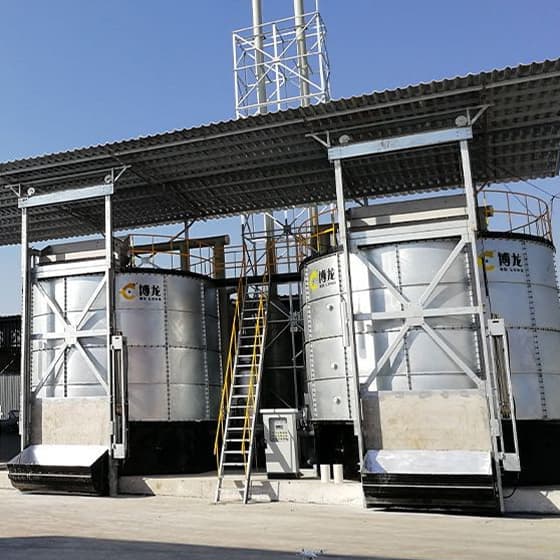Introduction: Sustainability is a key goal for modern livestock farming. Bolong Fermentation Tanks help farms achieve sustainability by improving waste management and promoting resource recycling. This article examines how Bolong Fermentation Tanks enhance the sustainability of livestock farms.

Waste Reduction: Bolong Fermentation Tanks significantly reduce the volume of livestock manure by converting it into compost. This reduction in waste volume eases the burden on storage and disposal systems, contributing to more efficient and sustainable farm operations.
Resource Recycling: The compost produced by Bolong Fermentation Tanks is a valuable resource that can be used to fertilize crops, improving soil health and productivity. By recycling nutrients within the farm, Bolong Fermentation Tanks support closed-loop farming systems, reducing the need for external inputs and promoting sustainability.
Environmental Protection: Properly managing livestock manure is crucial for protecting the environment. Bolong Fermentation Tanks prevent nutrient runoff, reduce greenhouse gas emissions, and minimize odors. These environmental benefits help farms operate more sustainably and comply with environmental regulations.
Case Study: A large cattle farm implemented Bolong Fermentation Tanks as part of its sustainability initiative. The tanks processed the farm’s manure, reducing waste volume and producing high-quality compost. The farm used the compost to fertilize its pastures, enhancing soil fertility and reducing the need for chemical fertilizers. This sustainable approach improved the farm’s environmental footprint and supported its long-term viability.

Conclusion: Bolong Fermentation Tanks enhance livestock farm sustainability by reducing waste, promoting resource recycling, and protecting the environment. These benefits support sustainable farming practices and contribute to the long-term success of livestock operations.